Recommended Tools & Resources for Real Estate Investors
Just like carpenters use tools and resources to build houses, real estate investors use tools and resources to build their businesses. I created this page to share what I recommend in your real estate investing toolbox. Enjoy!
Some of the tools and resources below have affiliate links, which means my company will earn a small commission if you purchase their product, at no additional cost to you. (See full affiliate disclosure) However, many of the items I recommend don’t pay any commission to me. First and foremost, I chose these tools and resources for their potential usefulness, not whether they make me money. With any product, make sure it fits your needs or goals before spending any money.
Recommended Books
I may be a little biased on my two real estate investing book suggestions…
Finding Real Estate Deals
 |
DealMachine is a top-rated app that empowers real estate investors by offering access to off-market properties and valuable data for informed decision-making. You can use it to build lists, automate direct mail marketing, drive for dollars, get contact info of owners, organize your leads, and more. If I were starting or growing my rental business again, this would be the one tool I’d use to help me buy more deals.
Use my link to start a free 7-day trial or get 45% off a one year subscription. |
Bookkeeping
 |
Quickbooks is my favorite accounting software. It’s flexible and powerful, and it can handle just about any accounting function you need. You can use either the online/cloud-based version or the desktop version. I personally use the desktop version because it costs less and has the functions we like. |
Personal Finance
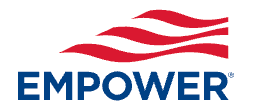 |
Empower (formerly Personal Capital) is a free online software that helps you organize and track your net worth and all of your financial accounts. Before Empower I struggled to keep track of my accounts because they were spread out between multiple 401ks/IRAs, banks, real estate investments, and brokerage accounts. Spreadsheets helped, but they were tough to keep up to date. Now, at the click of a button, I have everything automatically up to date, presented in easy-to-understand charts and reports. While Empower is a free tool, they do make money by offering their own mutual funds and advising service – but you’re free to say “No” to those if you aren’t interested. |
 |
Vanguard is the brokerage I use and recommend for stocks and bonds investing and for non-real estate retirement accounts. Their index funds consistently have among the lowest fees of the mutual fund industry. In addition, their entire corporate ownership structure is built to serve investors first (and not to charge excessive fees that only fatten the pocket of middlemen). |
 |
Cash Back Credit Cards can be an effective tool when choosing the right card, with the best rewards for your situation whether that be travel, cash or rewards points. You can also wisely use rewards cards for business expenses. |
 |
Student Loan Planner is an amazing resource for those with large student debt balances. My friend Travis Hornsby founded the website after helping his wife and her friends with their six-figure student loan balances. You can get both free advice, refinancing options, and paid consulting depending on your needs. |
Self-Directed 401k/IRA
I have used self-directed retirement accounts since I was 24 years old in order to invest my retirement funds in assets I know – like private loans, tax liens, and properties. You can set up IRAs (traditional and Roth), Solo 401ks (THE best retirement account available if you’re self-employed), Health Savings Accounts (called “the ultimate retirement account” by the MadFientist), and even Coverdell Education accounts. If you’re interested, these resources below will help you get started:
| Rules & Regulations for self-directed IRA/401k accounts are summarized at Wikipedia.com. The article also contains links to some of the relevant laws and IRS publications if you are interested in digging further. | |
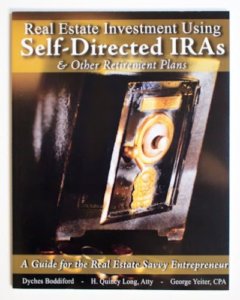 |
Real Estate Investment Using Self-Directed IRAs is a written guide that explains how to use your self-directed retirement account to invest in real estate or related assets like private mortgages and tax liens. The author is Dyches Boddiford, a veteran of almost 40 years in the business. Dyches is the teacher I trust most on this subject. There are MANY pitfalls with expensive consequences if you don’t follow the IRS rules for self-directed accounts. So, this is a must-have for your bookshelf if you are considering this type of retirement investing. |
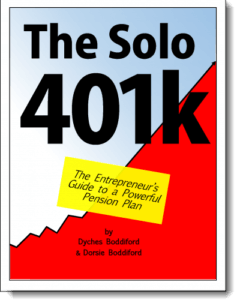 |
The Solo 401k: The Entrepreneur’s Guide to a Powerful Pension Plan is a written guide about the Solo 401k by Dyches Boddiford and Dorsie Boddiford. This type of account was designed for Americans entrepreneurs with no full-time employees other than the business owner(s) and their spouse(s). What makes it so powerful? Contributions to a Solo 401k can be 2x, 3x, 4x+ higher than limits for a normal IRA. There are no income restrictions for Roth component contributions. And the prohibited transaction penalties are also much kinder in the Solo 401k vs. the IRA. |
Property Management Software & Tenant Screening
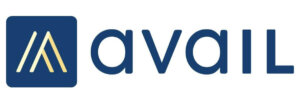 |
Avail.co is a fantastic, free rental property software for the DIY landlord. If you self-manage between 1 and 20 properties (or more), this software can help you collect rent, market properties, get tenant applications, run credit/background checks, sign digital leases, manage maintenance, and much more. |
 |
Rent Marketplace is a free online software that lets you accept tenant applications, order credit/background checks, and complete your lease. It’s all done online with a simple account you can access anywhere. I use this software for a rental my wife and I own and self-manage outside of my real estate business. |
 |
Buildium (paid service) is the software my business partner and I used in the past to self-manage 60 of our investment properties (we currently hired property managers to manage most of them). Getting this software was a HUGE game changer for us! We used it to advertise rentals, accept applications, screen tenants, collect online payments, sign leases remotely, track property maintenance, pay bills, do bookkeeping, and more. For less than the cost of cable, we were able to systematize and optimize our entire landlord business. And because it’s all done in the cloud, we could manage our business anywhere we have internet access. |
Real Estate Analysis (Running the Numbers)
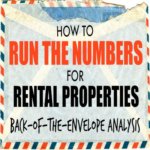 |
How to Run the Numbers For Rental Properties – Back-of-the-Envelope Analysis
This is a comprehensive guide I wrote to help you quickly and confidently run the numbers for rental properties. |
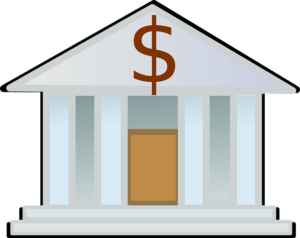 |
Amortization Calculator that you can use when estimating mortgage payments. This site is free, simple, and very useful. I’ve used it for many years. |
| Bigger Pockets Rent Estimate Calculator | |
 |
Zillow Rent Estimator |
Virtual/Paperless Office
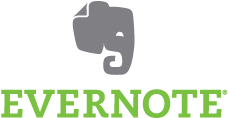 |
Evernote is an online app that helps you categorize, remember, and organize everything. We use it as our paperless filing system for our business. You can read more details about our system in this article (see tool #6). |
 |
Fujitsu iX500 is a top-of-the-line scanner we use to scan all of the paper associated with our business. It’s FAST (25 pages per minute) and smooth, which amazed me after using other clumsy and slow scanners before this one. After scanning, we upload the files to our paperless filing system in Evernote. |
Personal Productivity, Creativity & Better Thinking
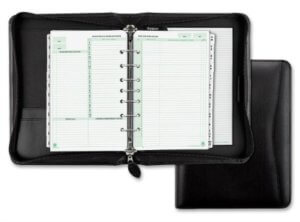 |
A Personal Planner is my organization tool of choice. Yes, it’s old school. But I have found that simplicity makes it less distracting and less prone to rabbit holes of unproductive behavior on a smart phone. I’ve written a few articles about how I use my planner, including: The Collection Habit – How to Get Everything Off Your Mind 5 To-Do Lists That Keep Me Sane The List of 10 – My Weekly System For Getting Priorities Done A To-Think List – How to Consistently Stimulate Your Best Thinking |
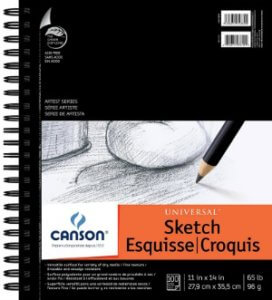 |
A BIG Sketch Pad is what I use for brainstorming, journaling, planning projects, and taking notes when I attend classes or listen to education online. Your brain power is enormous, and I have found small pieces of paper confine you to small thinking. So, this BIG sketch pad along with your favorite writing utensils do the trick! |
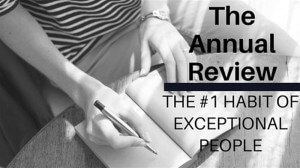 |
The Annual Review is my ritual towards the end of each year. It’s a process that has helped me set and accomplish more goals than I could have ever imagined. It takes the big visions you have and breaks them into practical, achievable plans for the upcoming year. |
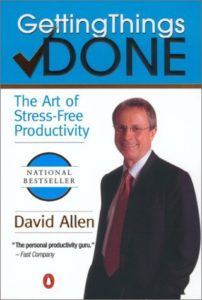 |
Getting Things Done by David Allen is a fantastic book that gave me many of my best productivity habits and systems. If you haven’t read it yet, it’s a must-have on your bookshelf. |
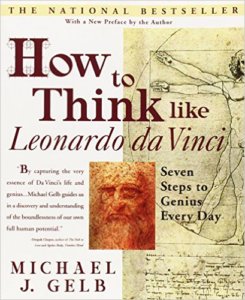 |
How to Think Like Leonardo da Vinci by Michael Gelb was a gift to me in college, and I have reread it many times since. This book helped me become a more creative, well-rounded thinker and person. One exercise from the book, called “100 questions” is life-changing. I do it in my journal every 2-3 years. |
 |
Philosopher’s Notes are like Cliff Notes for books about how to live a good life. The creator, Brian Johnson, has read and summarized over 400 books during the last decade or so. He also teaches online classes about optimal living and wrote a book about what he learned. I subscribe to his membership program for $10/month to get all the notes and his classes, and I often give his book as a gift. |
I am always looking to learn and grow! If you have other tools or resources you’d like to recommend, please contact me. Thanks!


